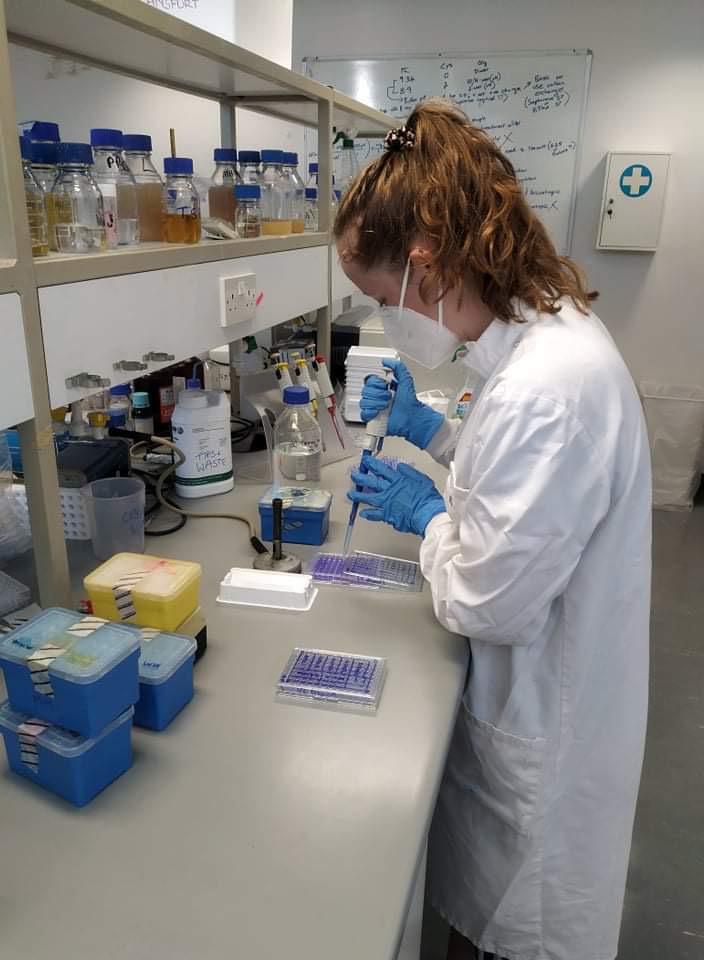SfAM Summer Student Placement Scholarship: an experience with AMR

The topic of a lab-based internship was introduced to my undergraduate Microbiology class in the third year of our degree as something that would be advantageous to us not only for gaining experience but also for professional development going forward. I knew immediately that this was something I was interested in as I had always enjoyed our practical classes and was eager to learn more about research practice. I got in contact with Dr. Marta Martins from the Microbiology Department at Trinity College Dublin where I was a student to discuss the possibility of such an internship and she suggested the SfAM Student Placement Scholarship. We submitted a project proposal investigating the relationship between antibiotic and biocide cross-resistance in bacterium Klebsiella pneumoniae and also its biofilm formation as linked to this resistance. We were successful in our application in 2020 but due to the COVID-19 pandemic my internship took place in Dr. Martins’ lab in the summer of 2021.
During this internship, I really feel I have gained invaluable experience working with antibiotic resistant bacteria. From safety and handling practices to common techniques investigating the features of antibiotic resistant bacteria, such as permeability assays, antibiotic susceptibility profiling, biofilm quantification assays, phenotypic tests, all of which taught me the importance of organisation and planning as much as the skills and techniques themselves. I gained confidence in my abilities in these laboratory practices, even optimising some of my experiments to ensure consistent results. We found that several of the K. pneumoniae clinical isolates we investigated, all of which had multidrug-resistant profiles, exhibited high levels of cell permeability, likely owing to their efflux capabilities which are often overexpressed in MDR strains. In addition to permeability, several of these clinical isolates were good biofilm formers, with biofilm biomass increasing upon addition of biocides such as hydrogen peroxide and ethanol, even up to two times the minimum bactericidal concentration. This indicates that biofilm formation underpins biocide tolerance and even possibly antibiotic cross-resistance in these clinical isolates of K. pneumoniae.
This internship has only increased my interest in laboratory-based research now that I have had a chance to carry out my own experiments and link the resulting data together in a meaningful way which has allowed me to link different concepts together in a real-time setting which I would have learned from my undergraduate degree. It has only left me excited to answer more questions arising from these findings.
I am eager to continue research in this area and I am currently pursuing a PhD in antimicrobial resistance. I feel this internship has been excellent preparation for this not only in the practical and research skills I have gained but also in the networking and career development opportunities afforded to me throughout its duration. I was able to speak with other research staff in the department about their projects and seek their advice in how to approach and interpret my own experiments and these new perspectives and knowledge offered to me are undoubtedly of great help to me going forward in my research career.



